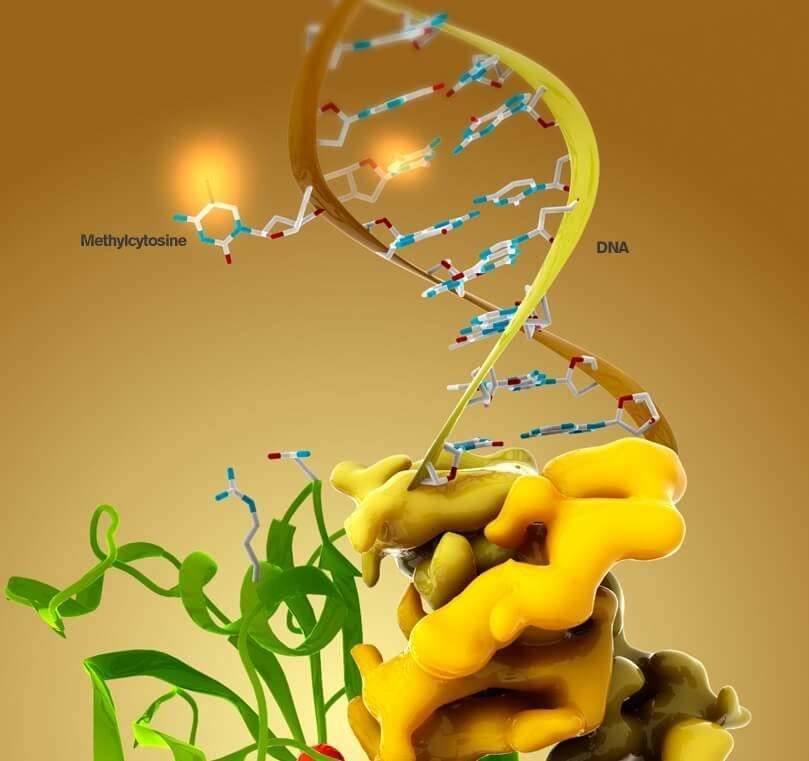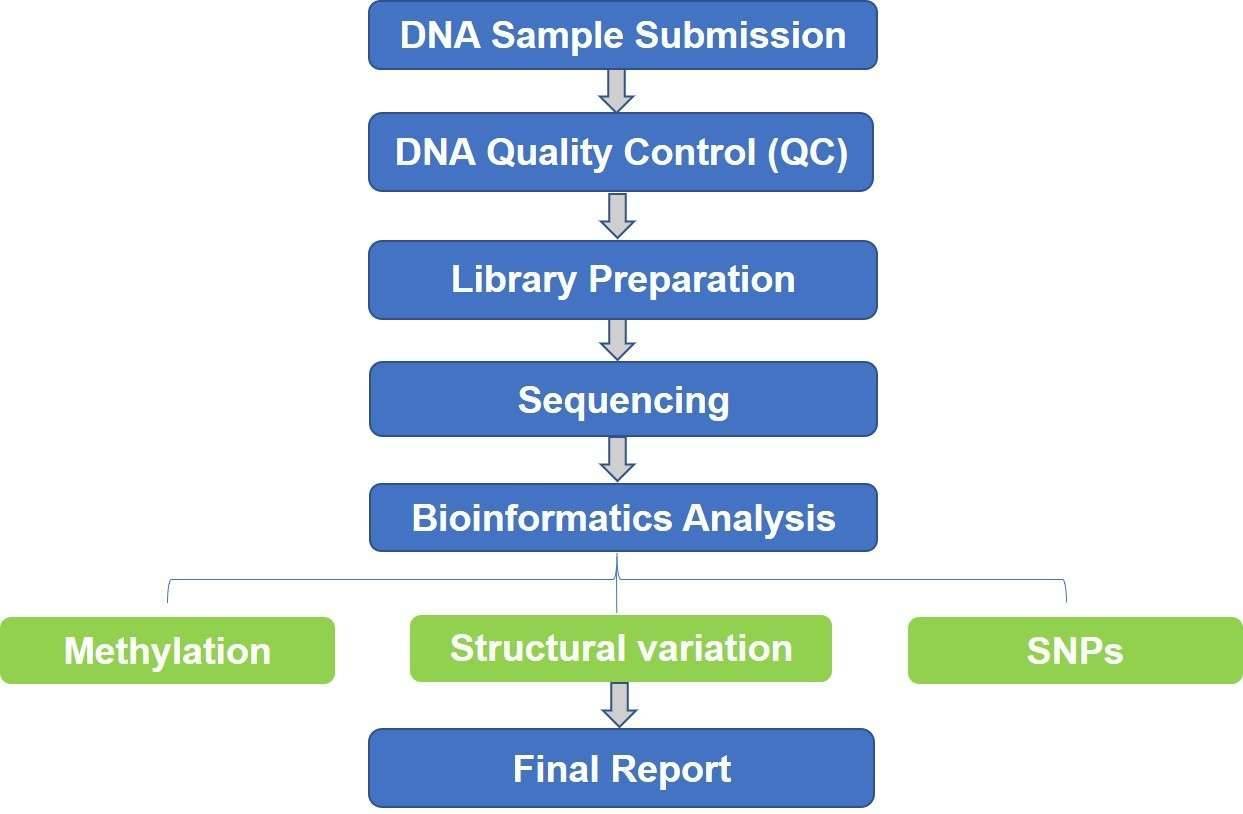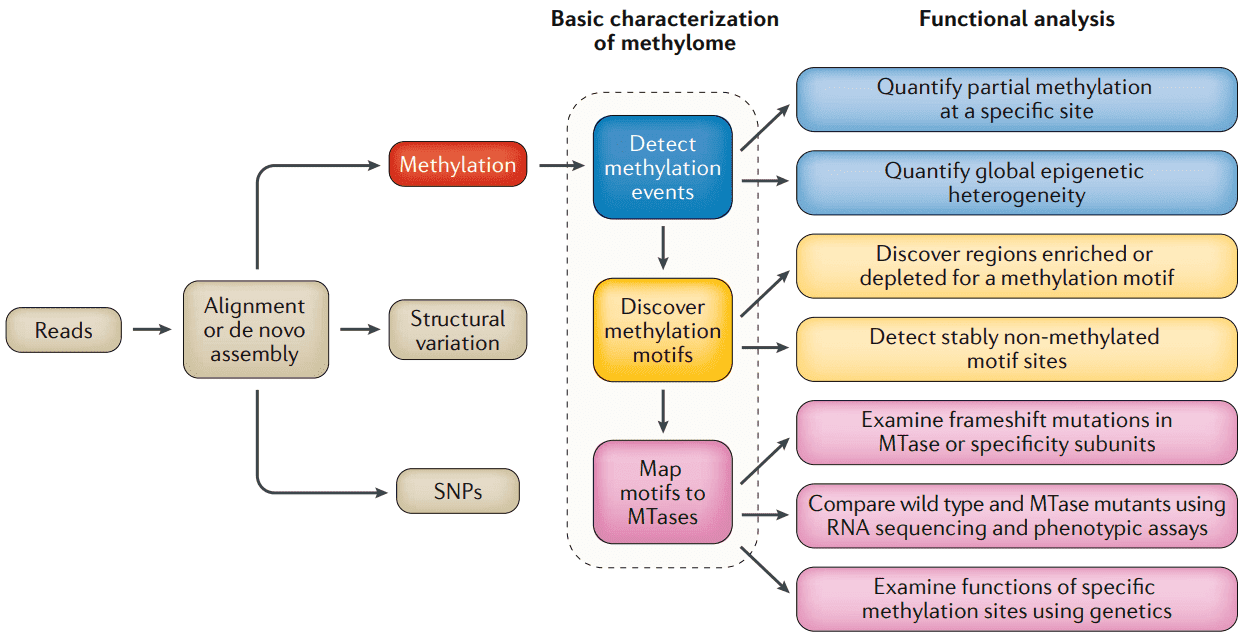
DNA methylation plays an important role in the regulation of gene expression, virulence, and pathogen-host interactions. Our integrated microbial epigenomics platform, utilizing advanced epigenomic techniques including restriction enzyme digest sequencing, bisulfite sequencing, and ChIP-Seq, single-molecule real-time sequencing (SMRT), and nanopore-based sequencing, can detect the diverse forms of DNA methylation at a genome-wide scale and enables a more complete understanding of microbial epigenomes. Not only do we provide the full set of methylated positions and targeted motifs, we also offer a complete map of the methyl transferase (MTase) enzymes and restriction-modification (RM) systems responsible for each methylated motif.
DNA methylation also contributes to cellular differentiation and development of organisms, which is crucial to understand gene expression and silencing in the development of cancer and other diseases. Microbial epigenomics provides insight into important tumorigenic pathways and enables us to find the molecular markers in multiple biological processes and understand underlying mechanisms associated with complex diseases. Microbial epigenomics analysis can be used in many areas of research, including cell cycle control, DNA repair, developmental biology, cancer research, and discovery of potential biomarkers and drug targets.






 Figure 1. Bioinformatics steps for comprehensive characterization of a microbial epigenome (Beaulaurier et al. 2019).
Figure 1. Bioinformatics steps for comprehensive characterization of a microbial epigenome (Beaulaurier et al. 2019).